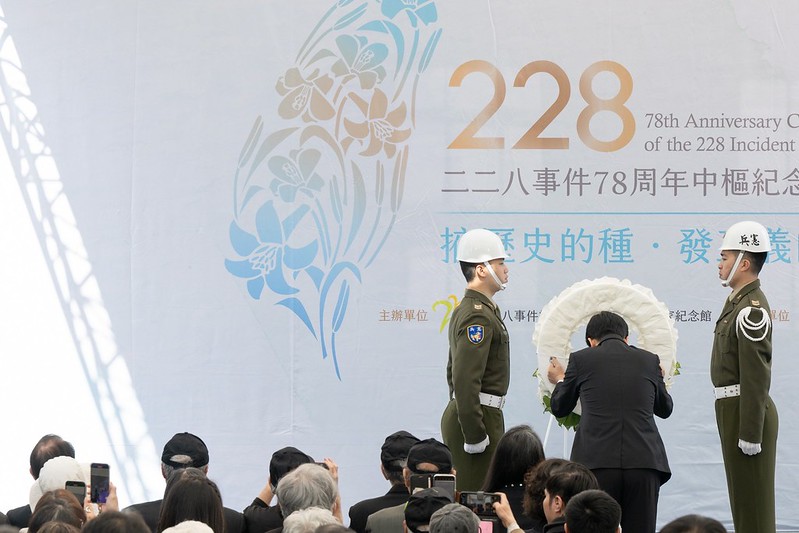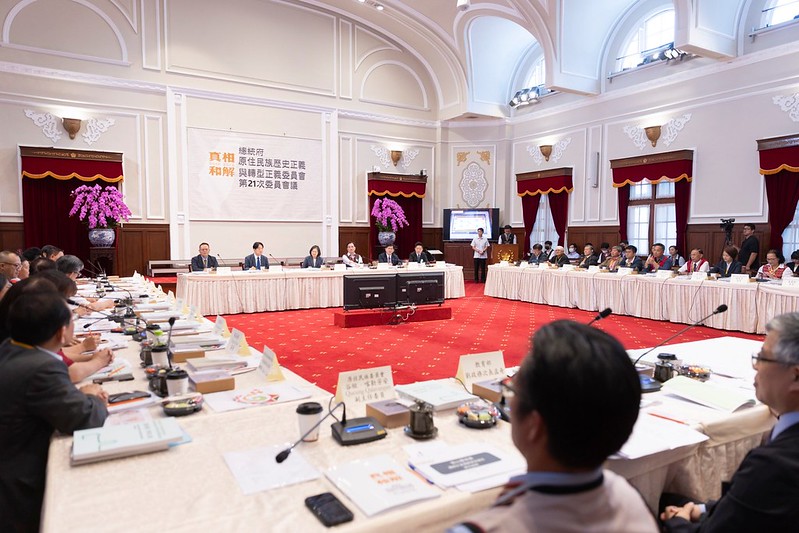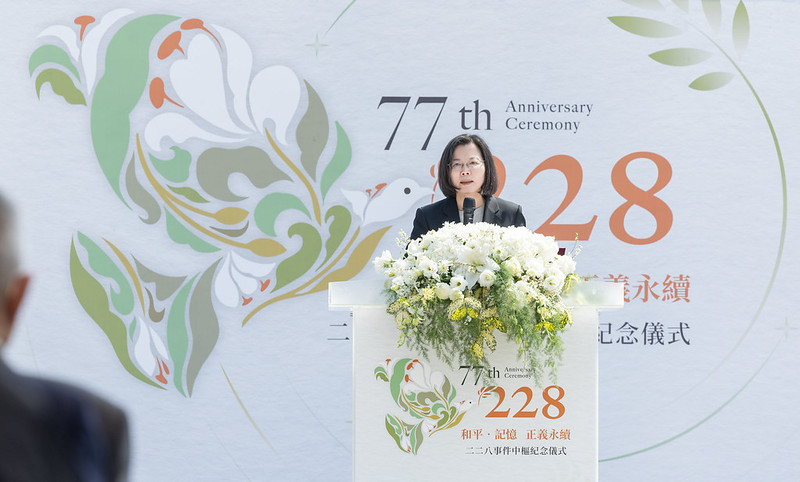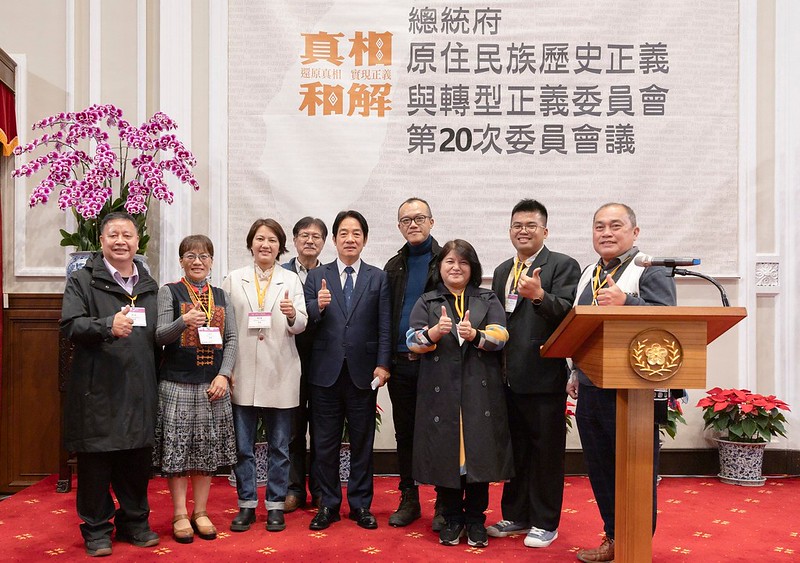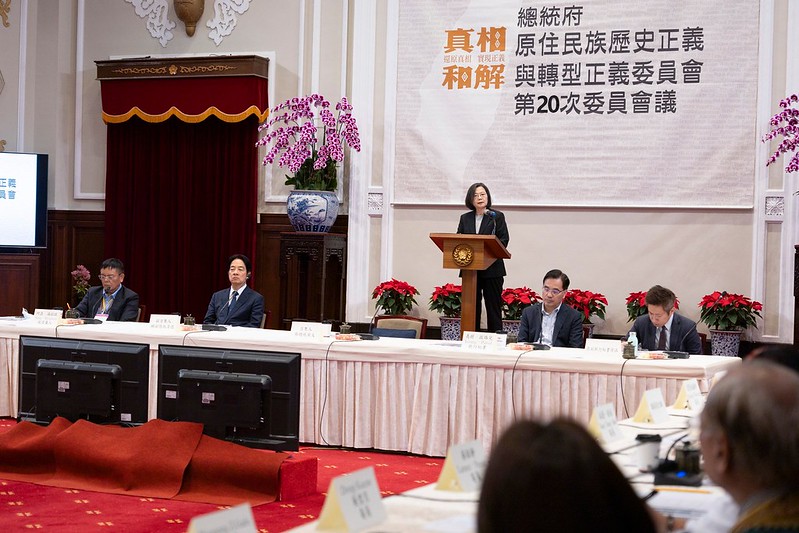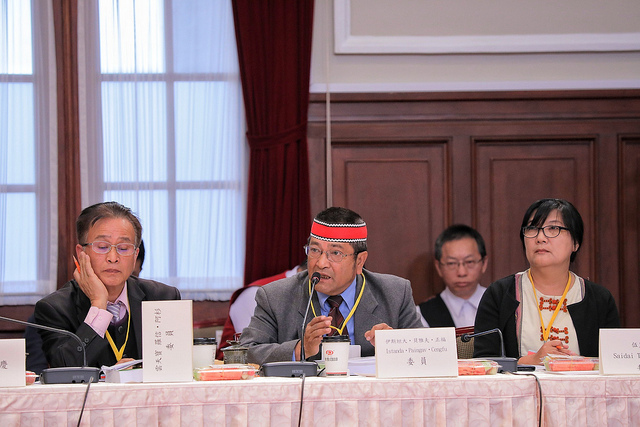News & activities
 News releases
News releases
Committee Convener President Tsai Ing-wen presided over the ninth meeting of the Presidential Office Indigenous Historical Justice and Transitional Justice Committee (the Committee) on March 14. The meeting ran for approximately two hours.
During the meeting, Committee members heard a progress report from the Subcommittee on Land Matters on the most recent phase of its work before discussing issues related to the legislative system regarding lands reserved for indigenous peoples.
The report on how the indigenous peoples lost their lands, examining the case of the Forestry Bureau's Lintianshan Forestry Culture Park, was presented by Subcommittee on Land Matters Convener Awi Mona (蔡志偉). The presentation was followed by responses from Forestry Bureau Director General Lin Hwa-ching (林華慶) and Minister of the Council of Indigenous Peoples (CIP) Icyang Parod (夷將‧拔路兒). The Committee members then exchanged views on the report, and President Tsai made the following four directives:
First, the president thanked and praised the Subcommittee on Land Matters for its report. She also thanked the members of the indigenous community, advisors from academia, and government agencies for their participation in the process of clarifying the facts of our complex history.
Second, she said that this report has provided a preliminary outline of how the indigenous peoples lost their lands under different regimes. The case of Lintianshan illustrates how past governments' cadastral registration systems have overlooked the agency of local indigenous communities. The president stated that we should empathize with the indignation and dissatisfaction that indigenous communities feel, and reflect upon our history.
Third, the president called upon the Subcommittee on Land Matters to continue assembling archival records and interviewing indigenous peoples, to do everything possible to offer a more complete historical picture. Committee staff, she said, should proactively provide all necessary assistance, and she asked Minister without Portfolio Lin Wan-i (林萬億) to arrange the participation of related government agencies.
And fourth, the president asked the CIP and the Forestry Bureau to draw up a follow-up action plan proposal for the Lintianshan case based on the phased recommendations of the Subcommittee on Land Matters. It is absolutely necessary that local indigenous peoples are included in the process, she said.
During the meeting, Committee members made a total of 28 proposals and five extemporaneous motions, including six proposals on the legislative system regarding lands reserved for indigenous peoples. Proposals included a suggestion by Saisiyat tribe representative Obay Ataw Hayawan (夏錦龍) to "draft a law governing indigenous land and maritime territories based on the United Nations Declaration on the Rights of Indigenous Peoples and the President's own political promises"; suggestions by Bunun tribe representative Istanda Paingav Cengfu (伊斯坦大·貝雅夫·正福) to "increase the area of land reserved for indigenous peoples to include all areas within 10 kilometers of old indigenous settlements," and to "convene a meeting on the return of indigenous lands to discuss how to best return ancestral property and farmland"; a suggestion by Rukai tribe representative Saidai Tarovecahe (伍麗華) to "expedite the return of indigenous lands by devising a 'compensation in place of litigation' system for non-indigenous persons who have made long-term use of lands reserved for indigenous peoples"; a suggestion by Tsou tribe representative voe-uyongana (吳新光) to "ask that the competent authority pay serious attention to the improper use of lands reserved for indigenous peoples, and that it evaluate measures to deal with the problem"; and a suggestion by Shu-ya Lin (林淑雅), an academic expert on the Committee, that "the Committee should clarify the crux of the issue regarding lands reserved for indigenous peoples, and ensure indigenous participation before adopting a policy decision."
After Committee members held a spirited discussion regarding the proposals, and CIP Minister Icyang Parod made a response, the president issued the following directives:
The statements of the Committee members clearly show that our indigenous friends care most about the issue of land, and that this is the core of indigenous historical justice and transitional justice.
The president noted the progress of three important bills described by CIP Minister Icyang Parod. First, a recent amendment to the "Slopeland Conservation and Utilization Act" has eliminated the five-year waiting period for any indigenous person who has applied to acquire ownership of reserved lands. This change is expected to benefit approximately 30,000 indigenous persons. Second, the "Regulations on Development and Management of the Lands Reserved for Indigenous People" needs to be upgraded to the level of a statute to effectively resolve problems and safeguard indigenous interests. Committee members' views will serve as important reminders during the drafting of a legislative bill. And finally, the draft act governing indigenous historical justice and the restoration of indigenous rights is very important for historical fact-finding work pertaining to land and other matters. The draft act has already been forwarded to the Legislative Yuan for deliberations, and the government will continue to engage in active dialogue regarding this matter.
